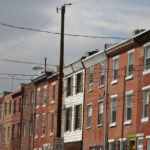October 10, 2018 – In an eviction deemed illegal by Philadelphia Municipal Court, our client, a DJ in Philadelphia, was suddenly locked out of his home of 17 years by his landlord Michael Cage on January 15, 2018. He spent several months pleading with his landlord to be able to retrieve his personal belongings, including tens of thousands of dollars of DJ equipment he used for work, to no avail.
Finally, he took legal action, and in March, the Philadelphia Court of Common Pleas vacated the judgement against him. In June, our client won a judgement by default on the merits of the eviction case in Philadelphia Municipal Court. At a hearing for this case, our client discovered that his landlord had thrown away and destroyed all of his equipment and nearly all of his personal belonging. Since being illegally thrown out of his home, our client has been unable to find permanent housing–at least one housing application was denied due to the now-vacated judgement–and has stayed with friends or in his car. He has also been unable to find steady work as a DJ or replace the equipment that his landlord destroyed. “This has been an extreme financial hardship for me,” our client said.
He is now suing Mr. Cage in the Philadelphia Court of Common pleas for wrongful eviction, violation of consumer protection law, and conversion, and is seeking actual and punitive damages. He is represented by the Public Interest Law Center and Klehr Harrison Harvey Branzburg, LLP.
The disruptive impacts of eviction effect more than just housing. Evictions, and the housing insecurity they create, often lead to job losses and an increase in financial hardship and poverty. One study in Milwaukee from Mathew Desmond, author the Pulitzer Prize winning book “Evicted,” surveyed more than 1,000 low-income renters and found that those who were forced to move from their home in the last year by a legal or informal eviction were 11 to 22 percent more likely to lose their jobs, when compared to those who had more stable housing. Evictions are one of the most pernicious effects of poverty, but evictions can also exacerbate and lead to poverty themselves. Our client’s loss of the tools of his livelihood in an illegal lockout is just one example of this phenomenon in action.

